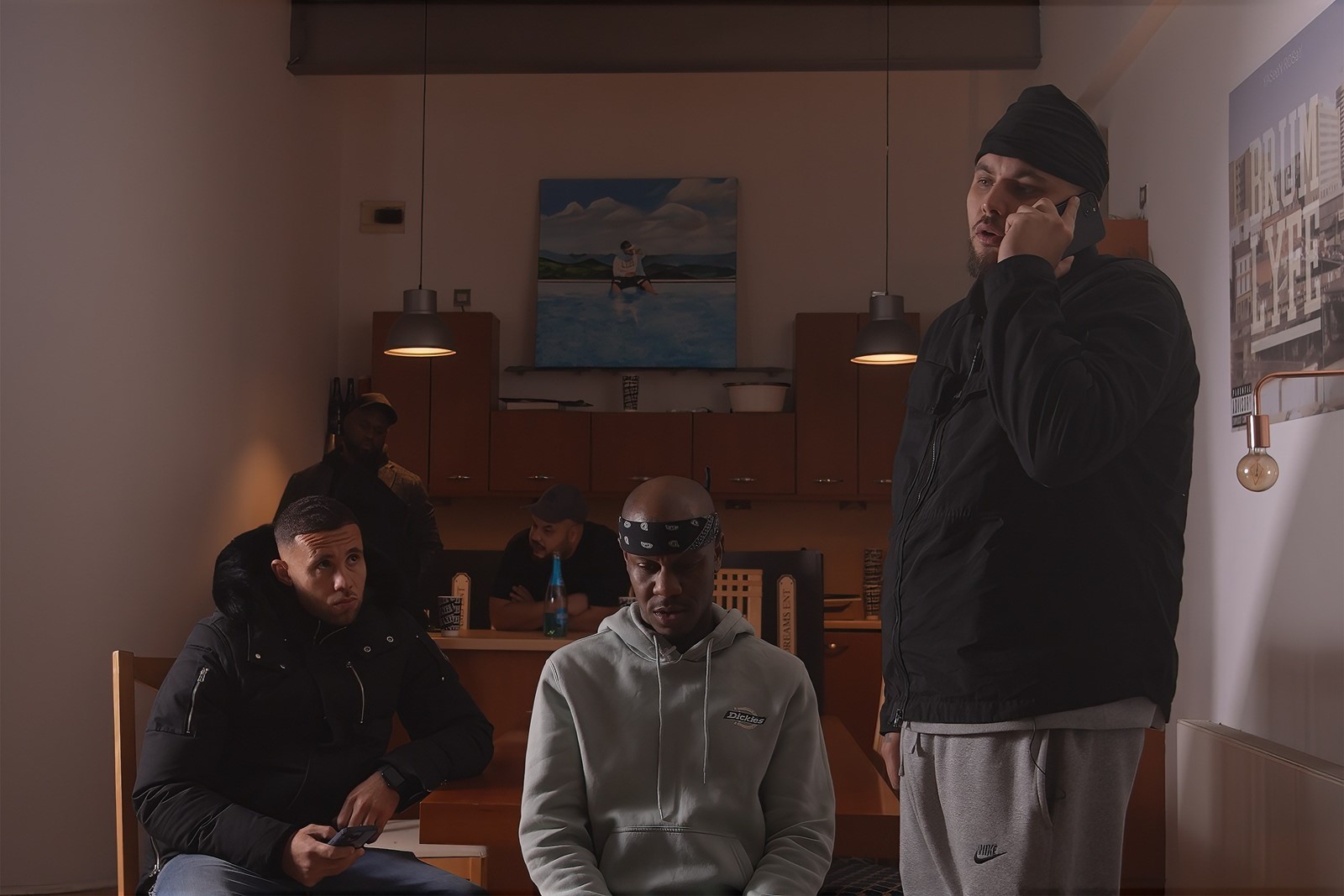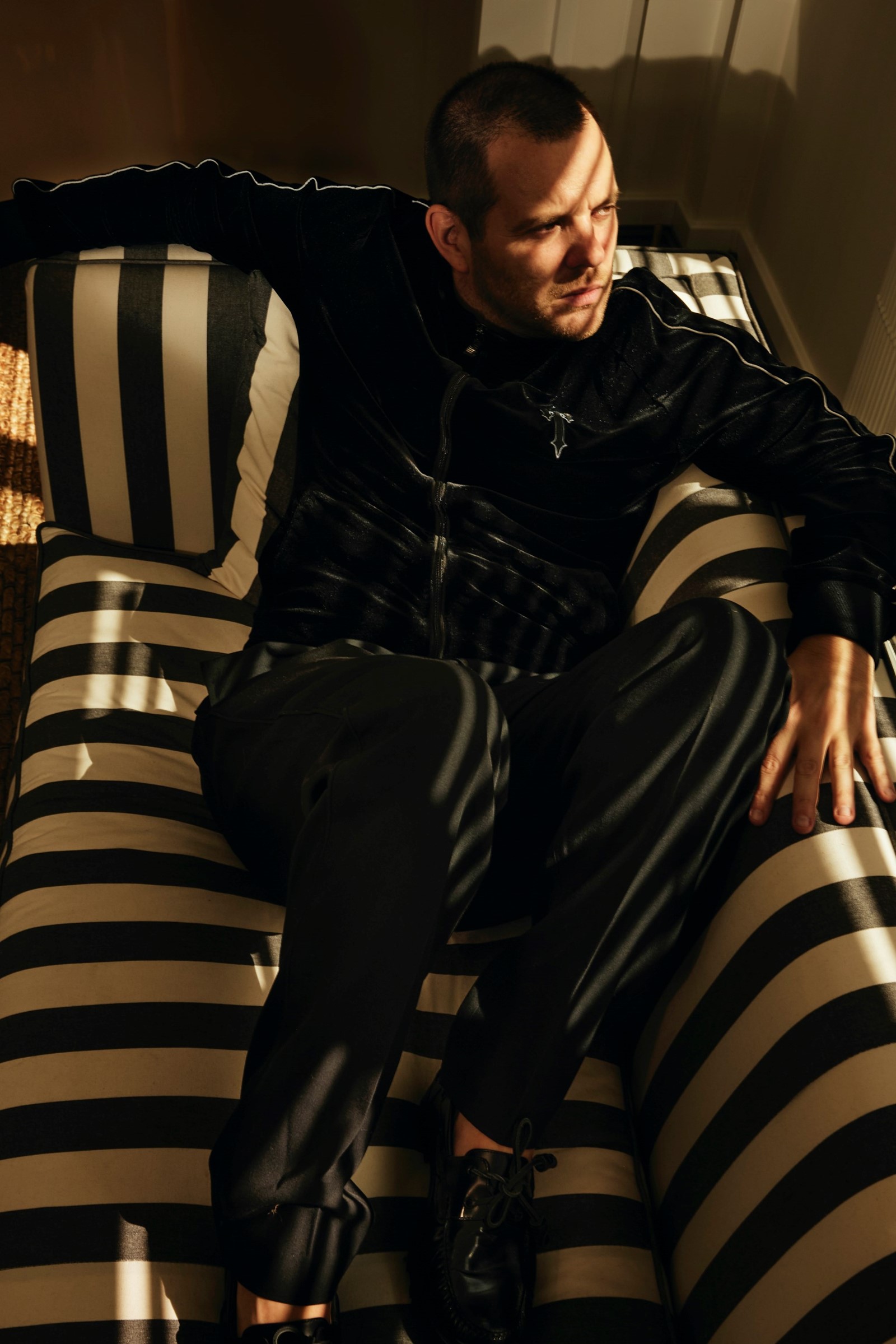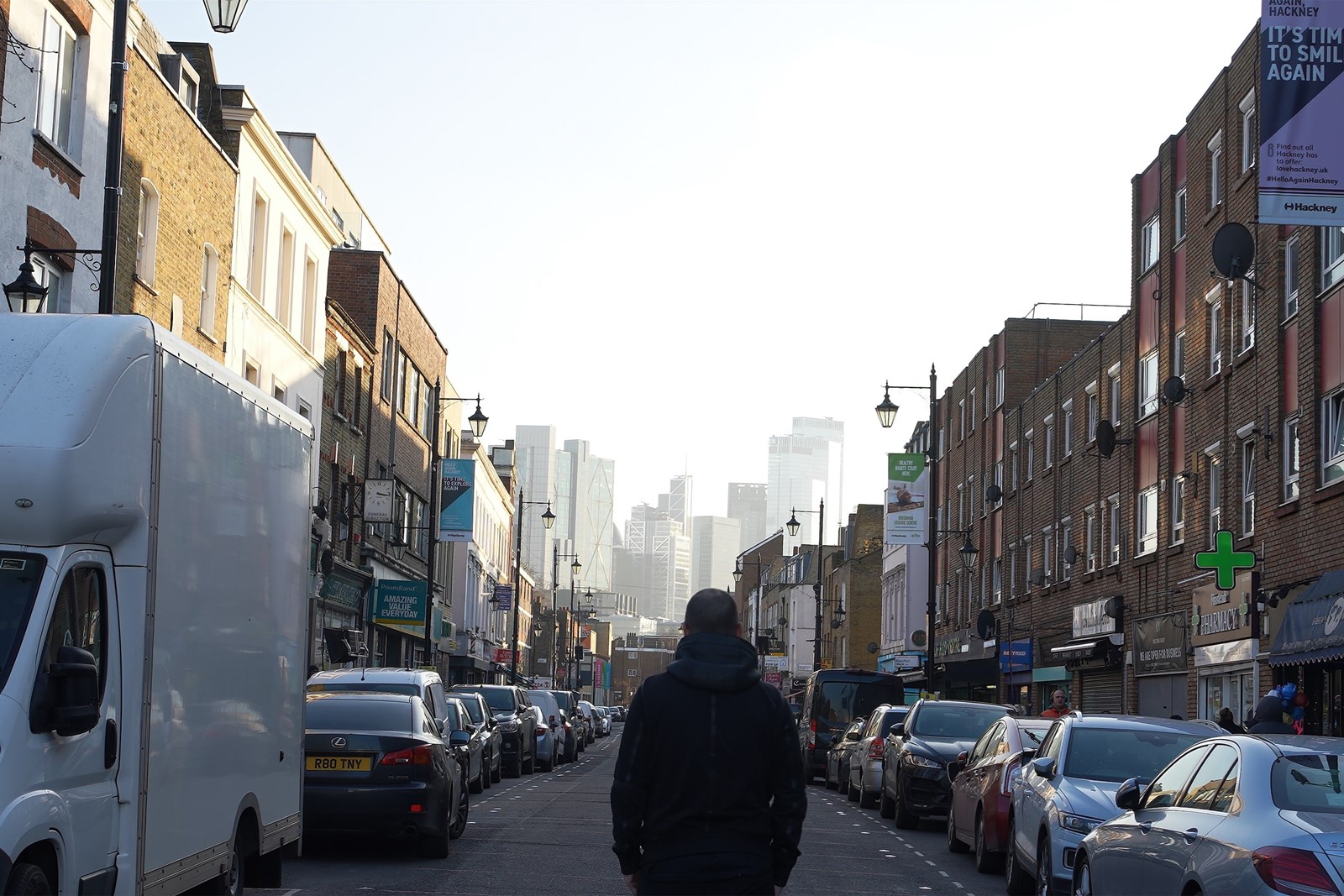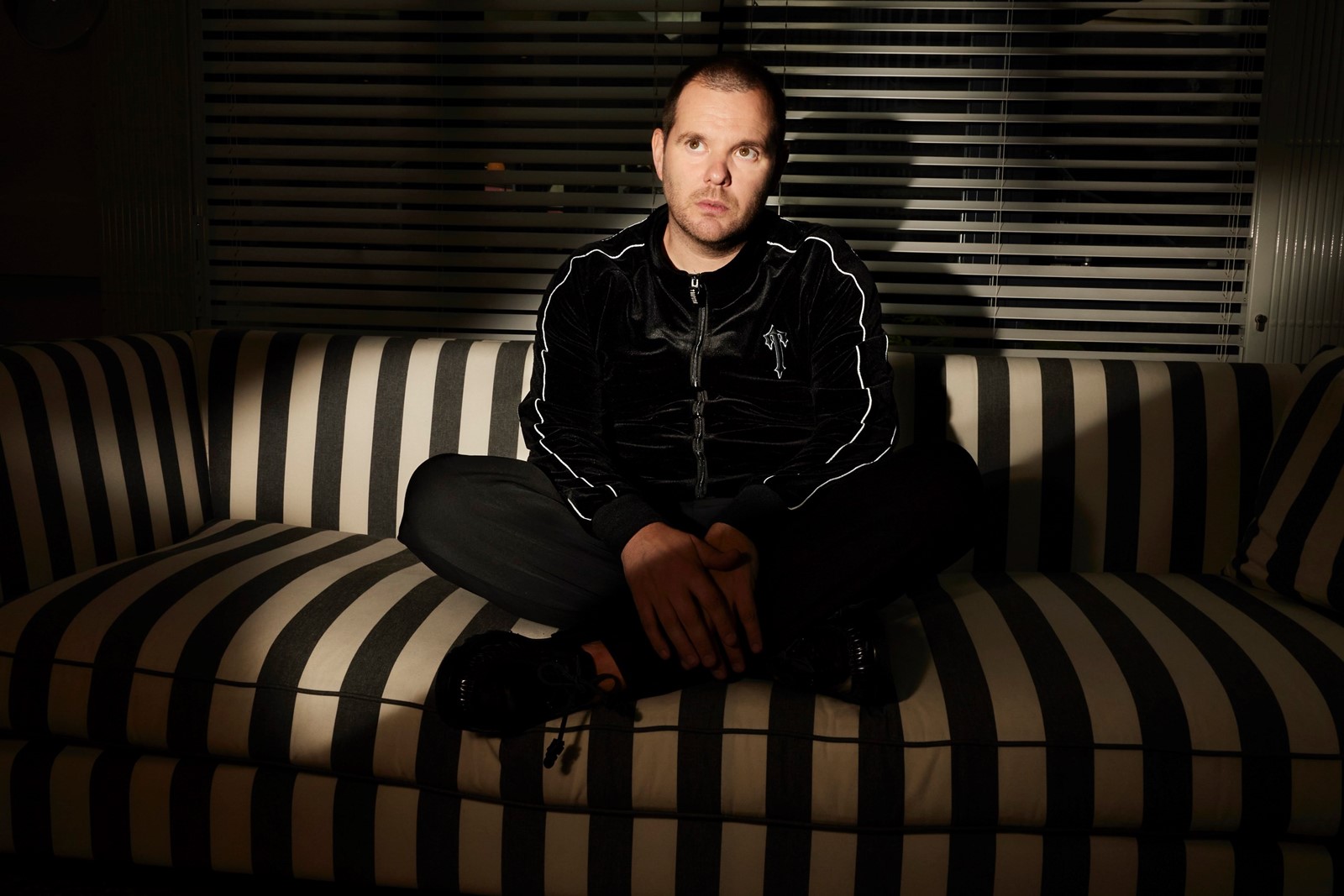“It’s the hardest thing I’ve ever done,” says Mike Skinner. “It became an obsession but as soon as I finished it, life has been really good. There was an unbelievable sense of relief.”
The Streets frontman is returning with his first new album in 12 years, The Darker the Shadow the Brighter the Light, but it is also a record that accompanies a near decade-in-the-making film of the same name that came close to breaking him. Skinner has written, directed, shot, starred in, edited and produced just about every conceivable part of the film. When he was told the foley recording costs for the film would be £30,000 alone, he even decided to do that, recording his own footsteps and environmental sounds to match up with scenes.
Described as a tripped-out noir murder mystery based in London’s clubland with Skinner playing a version of himself as a touring DJ who gets entangled in a drug deal gone wrong, it’s been the MC’s primary focus since wrapping up The Streets over a decade ago. “The reason I stopped doing The Streets was to make a film and then the reason I started doing The Streets again was to make a film,” he says.

In short: he needed to fund his passion project. The script Skinner wrote was given an estimated budget of £3 million he would need to raise. “No one was ever going to give us that,” he says. “So you either do it yourself or it doesn’t get done.” Skinner kept the budget down to low six figures in the end but it’s been an undertaking way beyond his initial thinking. “I've been editing music videos for years and when I started this project I thought it’s basically like doing 30 music videos,” he says. “Actually, it’s not like that at all. This was just orders of magnitude more intense.”
Because he had to film in stages over several years, often in different cities based on where he was DJing at the time, making the shots align became a head-spinning task. “In the film, we walk towards a corner and we’re in London,” he says. “And then we walk around the corner and we’re in Birmingham three months later. That’s why they have script supervisors. To make sure that when you walk around that corner, you’re still wearing the same T-shirt and your haircut is the same and you’re holding your phone in your right hand all that stuff. Continuity is an absolute nightmare.”
Although, Skinner is of course used to doing things DIY and plucking magic from nothing. His game-changing 2002 debut album Original Pirate Material was largely a bedroom recording, utilising a wardrobe as a vocal booth and using mattresses to absorb sound. However, that approach can only go so far in film. “You can’t ignore money in film,” he says. “You simply can’t. You can ignore money when you’re making music, but with film – you can understand cameras and lighting and all of that stuff – but you can’t ignore money. In a way it’s kind of more creative to have those limitations though. Particularly as you get older because you’re looking for more of a challenge.”

While he seems to be warming to the whole “amazing” experience a little more now – a recent cover feature interview with Loud & Quiet, while Skinner was still finishing the film, captures him close to breaking point and appearing quite tortured – it’s still clear it’s taken a lot out of him. “It was just the constant sense of: what the fuck am I doing?” he says. “There’s just so much to do. Absolutely every element of the film I’ve had to learn how to do and learn how to do it in the way that I want.”
From the opening gut-wobbling bass bounce and drug regret words of “Too Much Yayo”, the music plays the role of the voiceover in the film, inspired by a series of film noirs that Skinner loves such as Out of the Past. “I was like I’ll do a Raymond Chandler private detective type thing,” he says. “But then I thought actually, what would be quite funny was if I was a DJ because I know that world really well. It would be easy to shoot stuff in the clubs and also nightclubs are pretty crazy places with lots of stories.”
Skinner has just wrapped up a UK tour of Everyman cinemas, in which he’s been touring the film with an in-person Q&A every night. “Just in case this film’s shit,” he explains. “I wanted to make sure people had enough of a fun evening that they didn’t think it was shit. Although it doesn’t matter whether the film’s shit, I really enjoy it.” Skinner’s sense of whether or not he’s made something good is understandable given how long he’s been wrapped in that world and perhaps lost a sense of zoomed-out perspective. And by the time he got himself in front of the camera, his primary focus was on what he had to do next. “Acting was not the thing I loved the most,” he says. “I was just trying to get through it. Read the words and move on.” The film is unlikely to be winning awards but the ambition and determination that’s fuelled it remains impressive.

Skinner views The Darker the Shadow the Brighter the Light as being a comparable milestone moment on par with making his debut album – viewing this not as some anomaly or one-off side project but embarking on a new career. “When I did Original Pirate Material there was no pressure,” he says. “It’s the same with the film. Because we didn’t take a load of money from someone, we’re not under any pressure to make any money back. We only have to go on tour for a little while with The Streets and it’s kind of fine.”
He continues: “It’s nice that I get to actually talk about this stuff that I’m into. I don’t think anyone really wants to hear music from a 45-year-old, so it’s nice to have a bigger thing like the film to hang all the music off that is as challenging as making an album when I was 21. I think there’s an honesty to that.”
Mike Skinner’s new album The Darker the Shadow the Brighter the Light and film of the same name are out on 20 October 2023.
